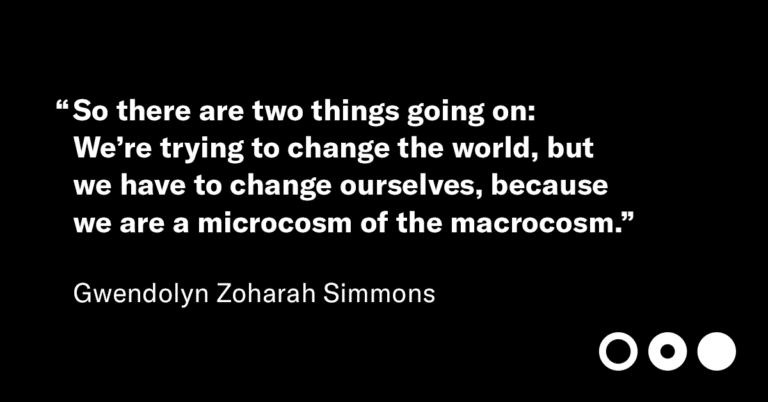
Image by Benedicto de Jesus/Flickr, Attribution-NonCommercial.
The Two Wings of Intellect and Love
Muhammad’s ascension to see God face-to-face is as key to understanding Islam as Jesus’ crucifixion and resurrection are to Christians, or Prince Siddhartha achieving enlightenment by sitting under the Bodhi tree. The narrative of the Ascension is that the archangel Gabriel awakened Muhammad from sleep in the middle of the night in Mecca, and then took him to Jerusalem, whereupon they ascended to Heaven. They rose level by level through the levels and layers of Paradise, where they met with the previous prophets including Abraham, Moses, and Jesus. Ultimately, Gabriel brought Muhammad to the very threshold of Divine presence. There, the archangel came to a sudden and abrupt stop, refusing to go any further. Gabriel then lowered his wings to put the Prophet on the ground.
Muhammad, somewhat puzzled, asked Gabriel: “Friend, you have been such a faithful companion from Mecca to Jerusalem to Heaven. Why do you stop here, and so suddenly?”
Gabriel answered:
“From this point on the intensity of God’s love is too strong. If I take a step as big as the width of a single one of my feathers, God’s love will burn all of me.”
Muhammad descended, and alone entered into God’s presence. He described that experience as having an “Eternal Now” with God. All Muslim seekers seek to emulate Muhammad. The mystics don’t merely want to act like Muhammad; they literally want to follow in his footsteps to meet God face-to-face.
Rumi and other mystics add a special twist to this familiar tale of Gabriel refusing to go any further. Here is Rumi’s telling of the same story:
Seek wisdom from the sage now, if you can,
Gain knowledge and new vision from this man!Seek wisdom, and then you’ll become its source,
Needless, safe from what drives men from their course;The student’s tablet turns to one ‘preserved,’
When intellect from spirit grace is served:At first his intellect would lead the way
But like a student now it must obey,The intellect repeats what Gabriel said:
‘Prophet, I’ll burn if I should move ahead!But you can still proceed towards the goal,
I’ve reached my limit, Sultan of the Soul!’— Masnavi, Volume 1, lines 1070-1075
These mystics tell us that in Islamic thought the angels symbolized the intellect. The intellect is enough to get us from Earth to heaven. The intellect is enough to get you to paradise. The intellect can help you rise up to the very threshold of God. But to enter “into” God, we need something else. Only God can enter into God. Only something that is of God, of the same essence, can enter into God. Why can Muhammad enter into God?
Because Muhammad himself is love. He is mercy. He is “mercy to all the universes.” And since he is love itself, love can enter into love.
What is love? Not merely an emotion or sentiment. Love is the very unleashing of God on this realm. And this love enters through human beings, realized human beings like Muhammad who embody this Divine love.
In so much of modern Western thought, there is a bifurcation between the mystical and the rational. The mystical was banished to the realm of the “private” and defined as non-rational, even anti-rational. In the Islamic tradition it was a different story. To begin with, the intellect was not something merely rational, not in the “head,” but actually seated in the heart. But even more important is the notion that Muhammad and Gabriel ascend together to God’s presence. We need both the intellect and the love. We need the intellectual and the mystical.
And what would it be, as Rumi insists again and again, to realize that Gabriel is inside us? That Muhammad is inside us? That the means of arriving at God, and entering into God, are already inside us? These are not external characters, but all inside us.
Our beings are like a bird with two wings. We need both wings — the intellectual and the spiritual — to soar. One wing can elevate us to God’s presence. The other — this fierce and radical divine love — gets us to enter into God’s heart.
May we soar on both of these wings.
May we combine the intellectual and the spiritual.
May we not settle for heaven, but aspire to enter into God’s own presence.

